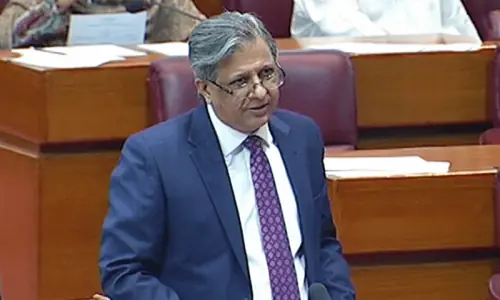THE demand raised by the people of Gilgit-Baltistan for constitutional clarity and provisional provincial status is not new. The region’s political parties and civil society groups often remind the Pakistani state that they want constitutional reform — as they did at an event in Islamabad last week. At the meeting, representatives of political and religious parties as well as activists pledged to launch a movement to secure constitutional status for the northern region. They called upon the state to implement the recommendations of the Sartaj Aziz committee and other official bodies regarding GB. The GB Legislative Assembly in 2021 had also passed a resolution demanding that the centre grant the region provisional provincial status. The people of GB want greater self-government, representation in Pakistan’s constitutional bodies and key institutions, and a working local government system. Because their demands have not been met, and the regional administration has failed to deliver on promises of good governance, the people have often taken to the streets to press their demands.
Since independence, reforms have been incremental in GB. Major milestones include changes in the Bhutto era, during Gen Musharraf’s regime, and under the post-2008 PPP government, as well as in 2018 under the PML-N’s watch. Yet all these measures, though significant, have failed to meet the people’s demands. One key issue is the fact that if Pakistan were to accept GB as a province, it would negatively affect the Kashmir question. One way to grant GB its demands, and not compromise Pakistan’s principled stand on the Kashmir dispute, is to give GB an AJK-like set-up, or full autonomy short of provincial status. The Sartaj Aziz-led body had recommended de facto integration of GB, giving the region representation in the NFC, Irsa, etc, ensuring the GB Assembly has full devolved powers, and ‘special representation’ in Pakistan’s parliament. It is not known when the Kashmir question will be resolved, and chances of a plebiscite in the occupied territory are slim. Therefore, till the day that dispute is resolved, Pakistan should consider giving GB greater representation under a provisional framework. Meanwhile, it is crucial for the elected local leadership to do a much better job of delivering services to the people while GB waits to secure greater political and economic rights.
Published in Dawn, January 21st, 2025



























